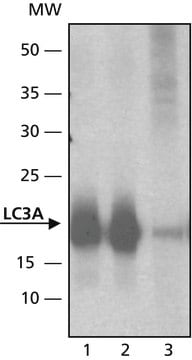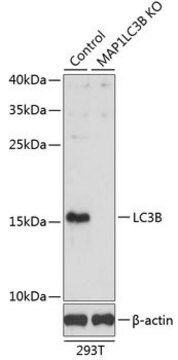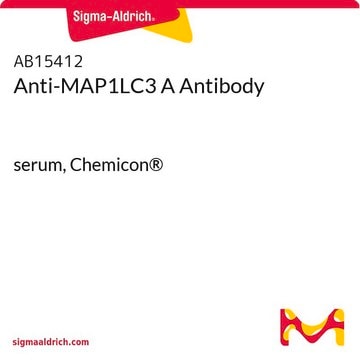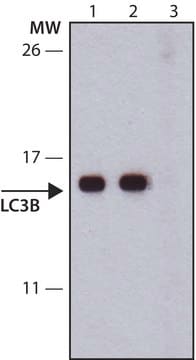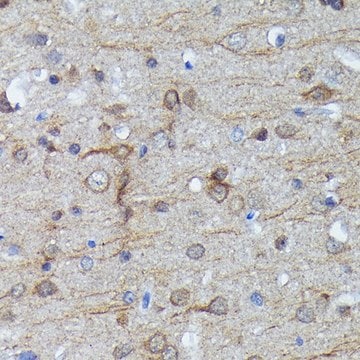ABC232
Anti-LC3 Antibody
serum, from rabbit
Synonym(s):
Microtubule-associated proteins 1A/1B light chain 3A, Autophagy-related protein LC3 A, Autophagy-related ubiquitin-like modifier LC3 A, MAP1 light chain 3-like protein 1, MAP1A/MAP1B light chain 3 A, MAP1A/MAP1B LC3 A, Microtubule-associated protein 1 li
About This Item
Recommended Products
biological source
rabbit
Quality Level
antibody form
serum
antibody product type
primary antibodies
clone
polyclonal
species reactivity
human, rat, mouse
technique(s)
western blot: suitable
NCBI accession no.
UniProt accession no.
shipped in
wet ice
target post-translational modification
unmodified
Gene Information
human ... MAP1LC3A(84557)
General description
Immunogen
Application
Apoptosis & Cancer
Apoptosis - Additional
Quality
Western Blot Analysis: A 1;1,000 dilution of this antibody detected LC3 in 10 µg of NIH/3T3 cell lysate.
Target description
Linkage
Physical form
Storage and Stability
Handling Recommendations: Upon receipt and prior to removing the cap, centrifuge the vial and gently mix the solution. Aliquot into microcentrifuge tubes and store at -20°C. Avoid repeated freeze/thaw cycles, which may damage IgG and affect product performance.
Analysis Note
NIH/3T3 cell lysate
Disclaimer
Not finding the right product?
Try our Product Selector Tool.
recommended
Storage Class Code
10 - Combustible liquids
WGK
WGK 1
Certificates of Analysis (COA)
Search for Certificates of Analysis (COA) by entering the products Lot/Batch Number. Lot and Batch Numbers can be found on a product’s label following the words ‘Lot’ or ‘Batch’.
Already Own This Product?
Find documentation for the products that you have recently purchased in the Document Library.
Articles
Autophagy is a regulated process involved in cell growth, development, and recycling of cytoplasmic components in cells.
Autophagy is a regulated process involved in cell growth, development, and recycling of cytoplasmic components in cells.
Autophagy is a regulated process involved in cell growth, development, and recycling of cytoplasmic components in cells.
Autophagy is a regulated process involved in cell growth, development, and recycling of cytoplasmic components in cells.
Our team of scientists has experience in all areas of research including Life Science, Material Science, Chemical Synthesis, Chromatography, Analytical and many others.
Contact Technical Service


